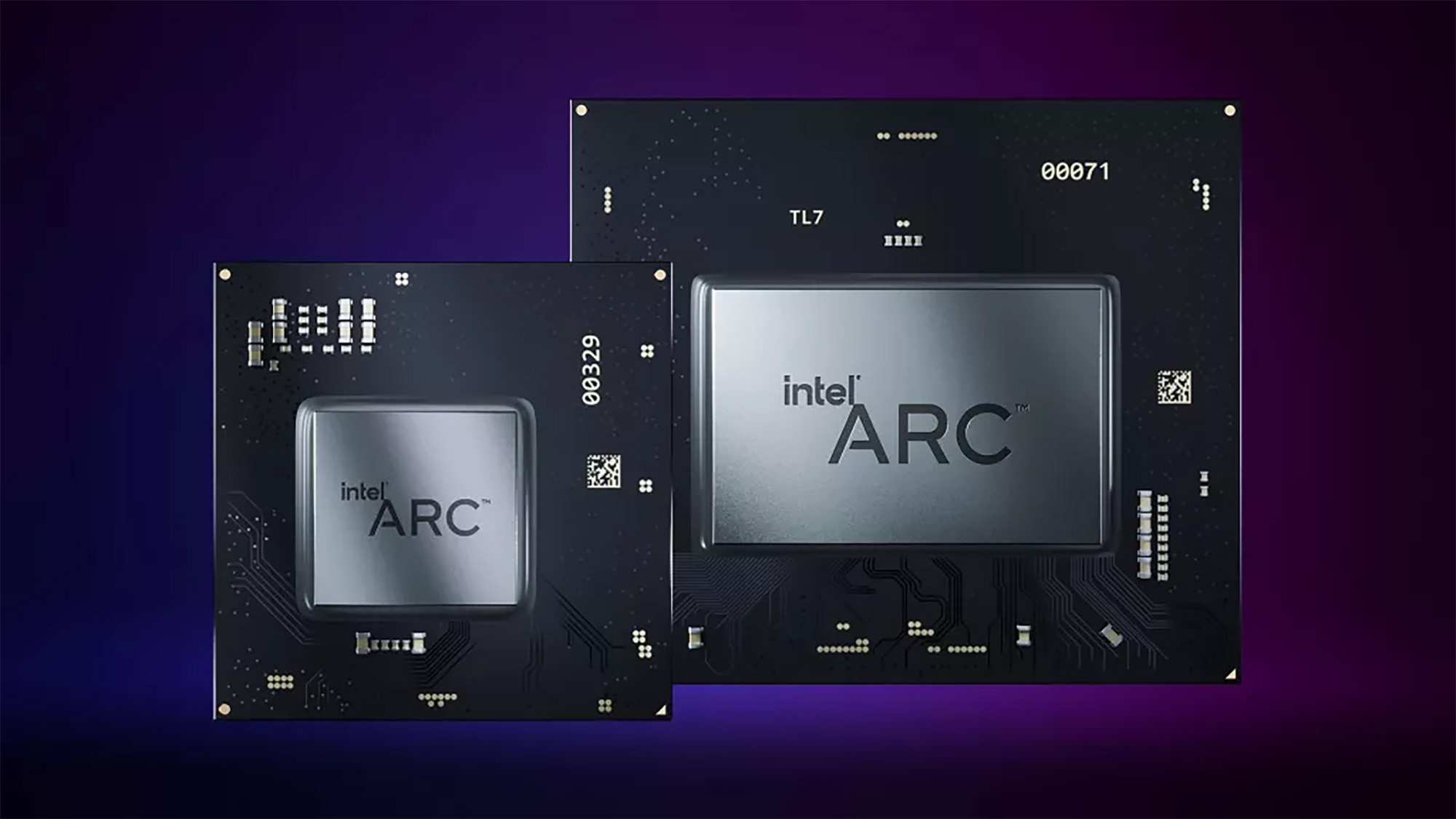Intel’s high-end mobile Arc GPU outperforms Nvidia RTX 3060 in new benchmarks
Intel is gunning for Nvidia’s 1080p gaming supremacy

Intel has shared a new set of benchmarks for its Arc A7-series discrete mobile GPUs, testing seventeen different games at 1080p on the A770M and A730M cards and comparing them to Nvidia’s Max-Q laptop variants of the RTX 3060 and RTX 3050 Ti respectively.
These results appear to show Intel’s Arc GPUs outperform the RTX cards by a moderate amount, with approximately a 12% performance increase on average for both Arc cards against their Nvidia counterparts. The A770M beat the RTX 3060 in 14 out of 17 games tested, while the A730M beat the RTX 3050 Ti in 12. The biggest individual difference was in Control, where the A730M outperformed the 3050 Ti by almost 50%.
However, benchmark figures provided by a manufacturer should always be regarded warily, since Intel obviously wants to drive interest in these new GPUs. There’s no way for us to verify these results ourselves yet, since the Arc A7 GPUs are currently only available in a small number of laptops sold in mainland China. The Arc laptops tested by Intel are pre-production models, while the Nvidia laptops are existing units from MSI and Asus.
While Intel might seem to have a small edge here in performance, it should be noted that Nvidia’s Max-Q cards are still the more power-efficient option. Intel didn’t provide exact operating TGPs for the Arc cards, but we know that the Arc A730M operates at least 20W higher than the 3050 Ti Max-Q, and the A770M tested could be using as much as 65W more than the 3060 Max-Q.
Analysis: Should we really be getting excited about Arc A7?
Overall, I’m a little concerned about these figures, even if Intel wants to frame them as a clear victory for Arc. Once I looked a bit more closely at the laptops Intel used for the testing process, I became even more worried.
The pre-production laptops used for the Arc tests were both equipped with the latest 12th-generation Alder Lake Intel processors and ultra-speedy DDR5 RAM, while the RTX 3060 and 3050 Ti gaming laptops both used less powerful 11th-gen chips and DDR4 memory.
This makes the comparison a bit unfair, frankly. The A770M laptop is a particularly egregious choice of comparison to the MSI Pulse GL66 that Intel used, since it has a powerhouse Core i9-12900HK CPU versus the GL66’s i7-11800H. The RTX 3060 and 3050 Ti GPUs tested also aren’t the highest-power models available for laptops.
Sign up for breaking news, reviews, opinion, top tech deals, and more.
Obviously the GPU is still going to be the main factor in gaming performance here, but these don’t feel like particularly fair comparisons. I’d really like to see a more accurate showdown using matching processors and memory, since I strongly suspect that 12% margin might be a lot smaller in reality.
With the Arc series already troubled by delays thanks to driver issues and Covid lockdowns, and initial impressions of the discrete desktop Arc A3 GPUs not looking great, Intel might be worried right now. If the Arc A7 laptop cards are barely able to outperform Nvidia’s current main competitors, what hope does Intel have once Lovelace laptop GPUs arrive?
While the desktop RTX 4060 isn’t currently expected to arrive alongside the first flurry of RTX 40-series GPUs, laptop OEMs probably won’t have to wait too long for them. Pricing is obviously still the big question here; if Intel can significantly undercut Nvidia, they might yet secure themselves a position as the best choice for affordable 1080p gaming. But for now, I’m afraid that the outlook is bleak for Intel’s much-awaited GPU market homecoming.
From Tom’s Hardware.

Christian is TechRadar’s UK-based Computing Editor. He came to us from Maximum PC magazine, where he fell in love with computer hardware and building PCs. He was a regular fixture amongst our freelance review team before making the jump to TechRadar, and can usually be found drooling over the latest high-end graphics card or gaming laptop before looking at his bank account balance and crying.
Christian is a keen campaigner for LGBTQ+ rights and the owner of a charming rescue dog named Lucy, having adopted her after he beat cancer in 2021. She keeps him fit and healthy through a combination of face-licking and long walks, and only occasionally barks at him to demand treats when he’s trying to work from home.